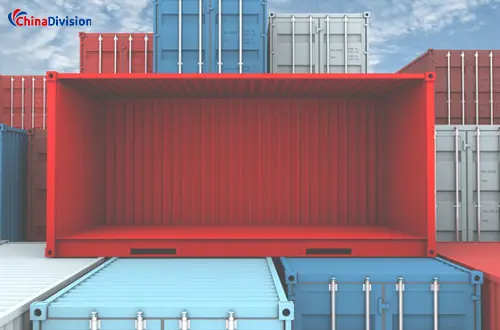International Ocean Shipping Quick Return Empty Container Guide
Table of Contents
In international shipping, effective management of empty containers is key to reducing costs and improving efficiency. As an important link connecting all parts of the world, international shipping carries the circulation of countless goods and commodities. However, many containers cannot quickly return to their original origin or other destinations after their cargo is unloaded. This not only wastes resources, but also leads to an increase in demurrage fees, putting tremendous pressure on enterprises and cross-border e-commerce sellers.

Have you ever encountered such a situation? Your cargo has been unloaded, but the container is stuck at the port, unable to get back to you in time. For many enterprises and cross-border e-commerce sellers, how to solve the problem of empty containers and improve container utilization is not only related to the control of transportation costs, but also directly related to the competitiveness and sustainable development of the business.
Why do we need to solve the empty box problem?
Detention fee
In order to avoid demurrage charges due to long-term occupation of containers, shipowners set a time limit for importers to use containers for free, usually within 10 days after the ship arrives at the port of destination. Once this time limit is exceeded, the importer will need to pay additional fees - demurrage charges - for continuing to occupy the container.
Free period
The free period for most imported containers is within 10 days after the ship arrives at the port of destination. Beyond this period, demurrage charges will begin to accumulate from the 11th day.
Container supply and demand issues
The main reason for shipping empty containers to other locations is insufficient container flow due to container management issues. A lack of container management can leave containers stranded in certain locations, causing container supply and demand issues.
Methods to avoid detention fees and improve container turnover rate
Take out the boxes directly at the yard
While the goods are undergoing import customs clearance, the importer can inquire with the shipowner about the container's scheduled return yard and establish contact with the yard. Arrange the fleet under the yard to directly transport the released goods to the yard to ensure that once the goods are released, they can be directly transported to the yard for unpacking operations, and then the goods are transported to the final destination by rail or car as needed.
The advantage of unpacking boxes in the yard is that it can complete the return of empty boxes while unpacking the goods. Compared with the method of first lifting the boxes to the warehouse and then returning them to the yard, at least two days can be saved. Once unpacking is completed, the container is considered returned, avoiding long periods of occupancy and additional costs.
Synchronized Customs Clearance and Empty Container Plan
While going through the import customs clearance procedures, the importer can learn from the shipowner which yard the containers will be returned to and where the empty containers will be returned. This method can also effectively reduce the demurrage fee when faced with situations such as customs price review that may lead to delays in customs clearance.
Optimize transportation methods
Choose rail or car transportation according to the actual situation to transport the goods from the yard to the final destination.
By adopting the method of quickly returning empty containers, importers can effectively reduce container detention costs, optimize container utilization, and gain more time for customs clearance and release. This strategy is especially suitable for importing large quantities of goods, helping to improve overall transportation efficiency and cost-effectiveness. If you need to understand or assist in dealing with international logistics-related problems, you can cooperate with Chinadivision, a professional third-party logistics service provider. We will further ensure that every step of the ocean shipping process is efficient and economical for you.





